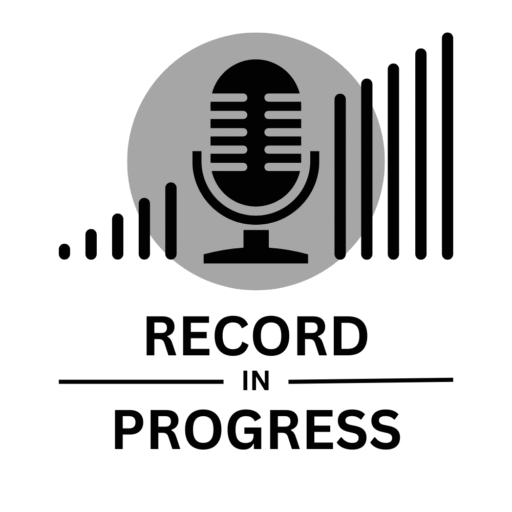
00:00 Introduction to the Podcast
00:39 Meet Joseph Erickson: Filmmaker and Educator
00:54 Teaching During the Pandemic
01:44 Critical Race Theory and Backlash
02:53 Threats and Challenges in Education
04:31 The Making of ‘Class Wars’
06:28 Voting in the 2024 Presidential Election
09:45 Reflections on the Election Results
14:29 The Future of Education Under Trump
19:18 Hopes and Fears for the Next Presidency
21:01 The Influence of Machismo and Media
00:00 Introduction: Understanding Different Perspectives
00:34 Personal Voting Reasons and Political Beliefs
01:20 Economic and Social Influences on Voting
04:22 The Role of Media and Propaganda
05:59 Free Speech and Its Implications
10:11 The Need for a New Social Contract
14:16 Conclusion: Moving Forward Together
A Record in Progress blog analysis by Louis Harris
Joseph Erickson arrived on the podcast wearing two hats—high-school teacher and documentary filmmaker—but the same war story binds them. In 2021 a father barged into Erickson’s virtual class, slammed down a kitchen knife, ripped a Pride flag from the wall, and accused him of “Marxist brain-washing.” That moment previewed a tidal wave:
Ethnic-studies lessons recorded and forwarded to “Moms for Liberty” chat rooms
Masked strangers confronting teachers in hallways
An exodus of educators nationwide since the pandemic’s peak
Key insight: The cultural fight over “critical race theory” isn’t abstract; it materializes as real threats in real classrooms, driving veteran teachers—and critical thinking—out the door.
Erickson’s forthcoming film, Class Wars, follows the breadcrumbs from Oregon suburbs to Oklahoma—ground zero for the next administration’s education blueprint. The pattern he documents is painfully familiar:
| Step | Tactic | Outcome |
|---|---|---|
| Induce crisis | Slash budgets, pass gag bills (e.g., Oklahoma HB 1775) | Test scores dip, public confidence drops |
| Declare failure | Brand schools “broken” and teachers “indoctrinators” | Voters lose faith in the institution |
| Offer a fix | Vouchers, tablets, subscription curricula | Public funds flow to private vendors |
Call-out: Don’t be distracted by talk of abolishing the Department of Education. It’s more profitable to keep the agency—then hollow it out and auction the parts.
Trump’s promise to “eliminate censorship” sounds libertarian until you test-drive it. In Erickson’s world it meant:
A student whispering “Build the wall” in a Latino classmate’s ear
Teachers forbidden to mention the Tulsa Race Massacre
Social-media algorithms shadow-banning phrases like “class war” while boosting inflammatory slurs
Translation: “Free speech” often functions as a shield for harassment while genuine scholarship—1619 Project, social-emotional learning—is labeled trespass.
Erickson argues the web isn’t a metaphorical “space” but an actual jurisdiction, privately owned. With Elon Musk steering the world’s largest megaphone and a Trump-aligned platform in the wings, the digital commons now operates on a pay-to-speak model. Moderation rules bend to the landlord’s politics.
Democratic dilemma: A republic built on open deliberation cannot depend on privatized infrastructure that throttles dissent by design.
Ask Erickson for the single worst feature of American life and he skips past ideology to firearms and fear. Active-shooter drills, hate-fueled intrusions, and endless doom-scrolling keep everyone in a sympathetic nervous system overdrive.
Social-commentary lens: A population locked in fight-or-flight mode is primed to trade civil liberties for promises of “order.” Fear is not a by-product; it’s political currency.
Erickson’s ballot: Dr. Cornel West—an aspirational vote made possible by Portland’s safe blue margin.
My ballot: Kamala Harris—an institutionalist bet on continuity.
Shared realization: Voters map morality, economics, and identity differently, yet most feel the system ignores them.
From Extinction Rebellion youth to meditative breath-work, both guest and host converge on one remedy: a reimagined social contract that teaches empathy, civics, and planetary stewardship as rigorously as math.
Fund people-powered storytelling. Class Wars won’t snag studio dollars; chip in at classwars.love.
Audit your media diet. If algorithms serve only outrage, you’re not “informed”—you’re harvested.
Breathe, then organize. Physiological calm is the front door to sustained civic action. No breath, no movement.
Erickson’s narrative is not another “teacher-as-martyr” anecdote; it’s a mirror reflecting our willingness to let fear, profit, and propaganda dictate the future of learning. If we refuse to look away—and if we back the educators, filmmakers, and students sounding the alarm—we can still rewrite the ending.
The record is still rolling. Let’s make the next track a collaboration worth replaying.